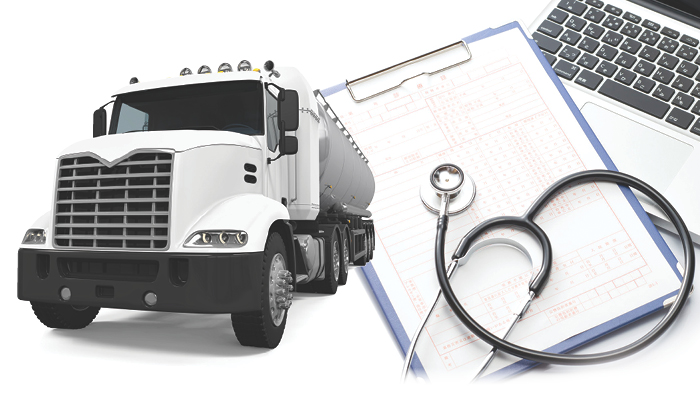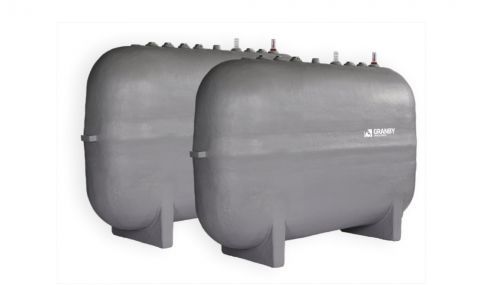All
Safe Driving Musts
by Mike Every, Foley

How to Make Sure Your Drivers Are Not a Liability While on the Road
Recently the Federal Motor Carrier Safety Administration (FMCSA) withdrew two controversial regulatory proposals that had received a considerable amount of backlash. The first, which would have required all CDL drivers to be screened for Obstructive Sleep Apnea (OSA), was withdrawn due to insufficient information. The second, which would have instituted speed limiters on all newly manufactured CDL-required vehicles, has been removed from further deliberation.
While eliminating the proposals may be good news for CDL drivers suffering from sleep apnea and for DOT-regulated business owners, it does raise the following question: How can you be certain your drivers are physically qualified to operate a truck while also making sure they are obeying posted speed limits and operating safely?
It may seem like a daunting, perhaps almost impossible, task, but there are steps you can take that will help.
DOT Medical Evaluations
All drivers who operate Commercial Motor Vehicles (CMV) with a Gross Vehicle Weight or Combination Weight Rating of 10,001 pounds or more are required to undergo a medical evaluation with a DOT-qualified physician at least once every 24 months. It’s important to note here that the regulation is based off of a vehicle’s gross weight, and therefore applies to both non-CDL and CDL drivers.
Upon hiring a driver, one of the first steps is to obtain a copy of his or her medical certificate, taking note of the expiration date. Although employers may not request the full medical report, due to HIPPA laws, the certificate verifies a driver’s physical capability to operate safely. If a medical certificate has expired or if the driver has not undergone a DOT physical, he or she must not be permitted to operate a CMV until the examination has been performed and a current certificate has been provided.
Initial DOT Driving Records
Along with the medical certificate, you must also obtain a three-year history of the person’s driving record at the time of hire. As with the medical evaluation regulation, this is based off of a vehicle’s gross weight, and therefore applies to both non-CDL and CDL drivers. The driving record will list all moving violations an individual has received and helps employers determine whether a driver may be a liability.
Annual Driving Records and Reviews
Moving forward after a driver is hired, you must also pull their motor vehicle record at least once every 12 months. Prior to obtaining the annual record, drivers must compile a list of violations, certifying to any moving violations they may have received over the previous 12 months. Upon receipt of the annual driving record, the employer must conduct an annual review to verify whether the driver has been obeying the laws of the jurisdictions he or she has traveled through.
Driver Training
All DOT-regulated businesses should require annual training that addresses the following topics (at a minimum):
- Hours-of-Service rules
- Defensive driving techniques
- Driving safely in inclement weather
- Adequate pre-trip/post-trip vehicle inspections
Disciplinary Policies & Procedures
It is understood that there is only so much an employer can do to ensure drivers are always safely operating vehicles. That’s why it’s important to implement progressive disciplinary policies and procedures that clearly define expectations and requirements, as well as repercussions should drivers not adhere to them. At a minimum, these policies should include:
- Following the Hours-of-Service rules in order to ensure drivers are adequately rested.
- Being aware of and adhering to all speed limits and individual jurisdiction rules.
- Prohibiting the use of handheld devices and texting while operating a motor vehicle.
- Prohibiting the on-duty possession or consumption of alcohol.
- Prohibiting the possession or use of controlled substances at any time.
- Requiring drivers to alert the employer to all roadside inspections that have resulted in a moving violation or infraction of any kind.
- Requiring drivers to alert the employer if his or her license is revoked or suspended for any reason.
Policy Enforcement
Carrying out disciplinary action is often easier said than done, especially for small businesses that employ close friends or family members. However, this is part of owning a DOT-regulated business, and it is imperative that disciplinary action is taken when necessary.
Although the FMCSA has eradicated the proposed sleep apnea and speed limiter rules, it is almost a sure bet that another controversial proposal is just around the bend. Fortunately, publications such as Oil & Energy and compliance companies such as Foley are here to keep you informed and help keep you in compliance with the DOT.
Related Posts
 U.S. Competing to Secure Critical Minerals
U.S. Competing to Secure Critical Minerals
Posted on June 16, 2025
 The Clean Air Act, the EPA, and State Regulations
The Clean Air Act, the EPA, and State Regulations
Posted on May 14, 2025
 Day Tanks Support Back-up Generators in Extreme Conditions
Day Tanks Support Back-up Generators in Extreme Conditions
Posted on March 10, 2025
 Major Breakthrough in Lithium-Ion Batteries
Major Breakthrough in Lithium-Ion Batteries
Posted on February 12, 2025
Enter your email to receive important news and article updates.
